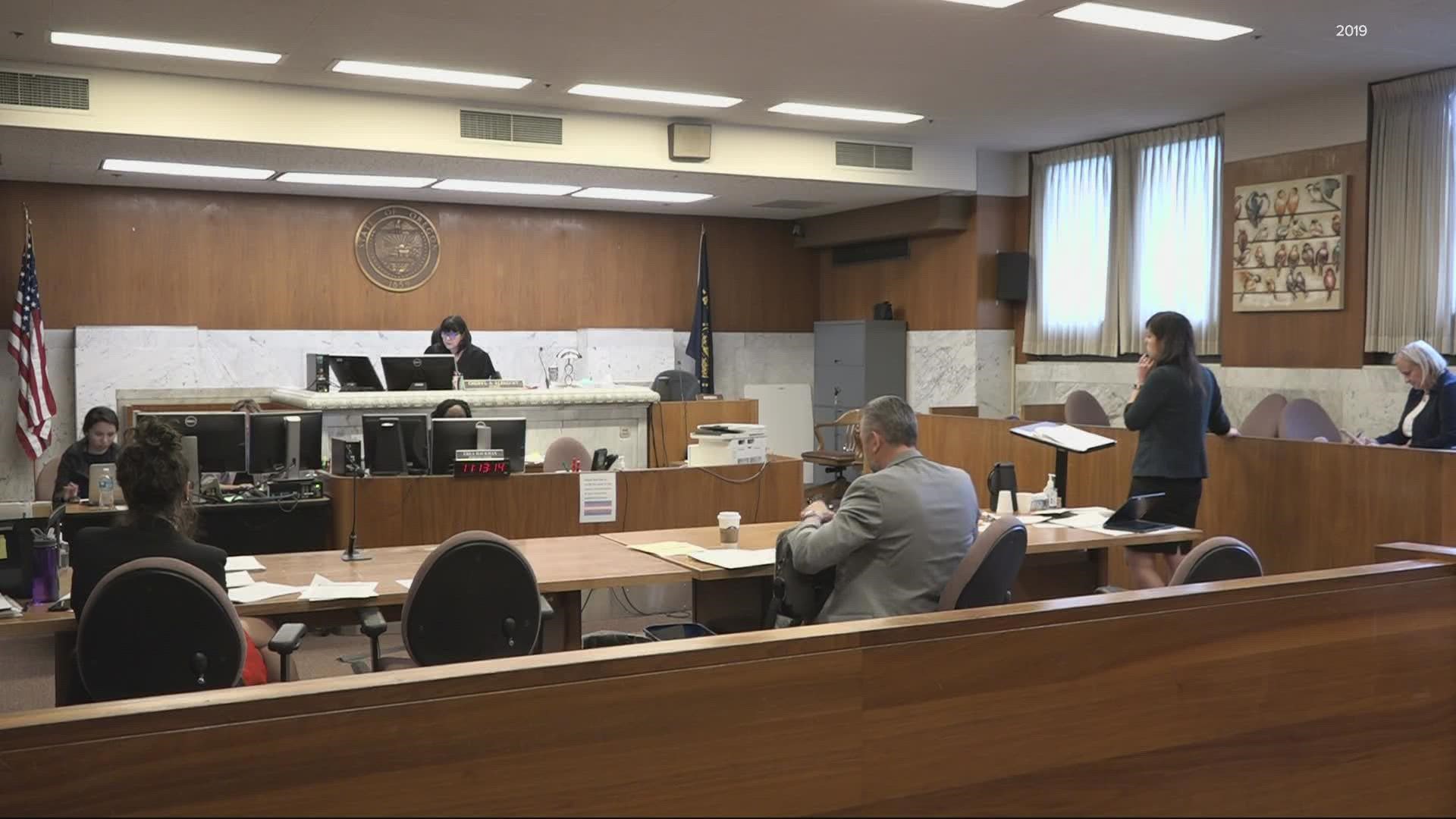SALEM, Ore. — A recent report by the American Bar Association shows Oregon's public defense system is severely understaffed and overworked.
The Oregon Project, requested and funded by Oregon state legislators, took more than two years to complete. It focused on Oregon's current staffing and caseloads. It also used the Delphi method, described in the report as "an iterative process used in this study to identify how much time an attorney should spend, on average, in providing representation in certain types of criminal and juvenile cases."
The report studied whether Oregon's system has too many or too few full-time attorneys. Currently in Oregon, there are 592 full-time attorneys contracted by Oregon's public defense system. To provide effective counsel for the current caseload, each attorney would need to work 26.6 hours a day. The report suggests that to meet demand, Oregon would need to hire 1,296 more full-time public defenders.
Christine Breton is a public defender for Multnomah Defenders, Inc. in Portland. She said her days are filled with cases and her mornings before the office opens and well after it closes start and end with handling various work on her cases. She said it's difficult to catch up on cases.
"As you pick up more and more cases, it becomes harder and harder to resolve any cases because the more clients you have, the harder it is spend a lot of time on any one case," Breton said. "It becomes a lot of time trying to manage so many cases that it slows down all of your cases from resolving and you're picking up more cases as it's happens and it just kind of keeps on continuing."
She said seeing the report is heartbreaking but vindicating.
"I think there's this feeling, especially among other attorneys like, yeah, OK, that makes sense," Breton said. "It's hard to think that every attorney is doing the work of three attorneys. [That's] what that number basically says to us. It's like wow, that is so much, but it explains why we feel the way we do."
Steve Singer, the executive director of the Oregon Office of Public Defense Services, said he was expecting the report to find staffing levels to be below 50%. He was surprised to see it closer to 30%.
"If you combine with the overloaded workload and the low pay, it is driving people out of the system," he said. "And so we're creating a downward spiral where more of these people, including attorneys and investigators, leave the public defense system. That's taking their workload and putting it on fewer and fewer lawyers and investigators, which is increasing their workload without any increase in pay."
Singer said it will take time and money to fix the current situation, a problem that he predicts will get worse before it gets better.
"We clearly need more funding. We need more money from the legislature so we can increase pay," Singer said. "We need more funding because more funding is the only way to create more demand and more demand is ultimately the only way to create more supply. This is just basic economics 101. If we don't have the money, which is our demand side, we will never get the supply."
Oregon legislators have tried in the past to get the agency money, most recently in 2019. House Bill 5050 directed $20 million in emergency funding to be given to the agency but when the pandemic happened in early 2020, that money was pulled back as the state cut down on spending.
Breton said she hopes this report helps get the office more funding, but she's cautious because she said public defenders have seen that dangling carrot before.
"Maybe it'll happen now," she said. "But I don't think anyone's holding their breath on the ground, because it's time and time again they say, 'We see that there's a problem here.'"

